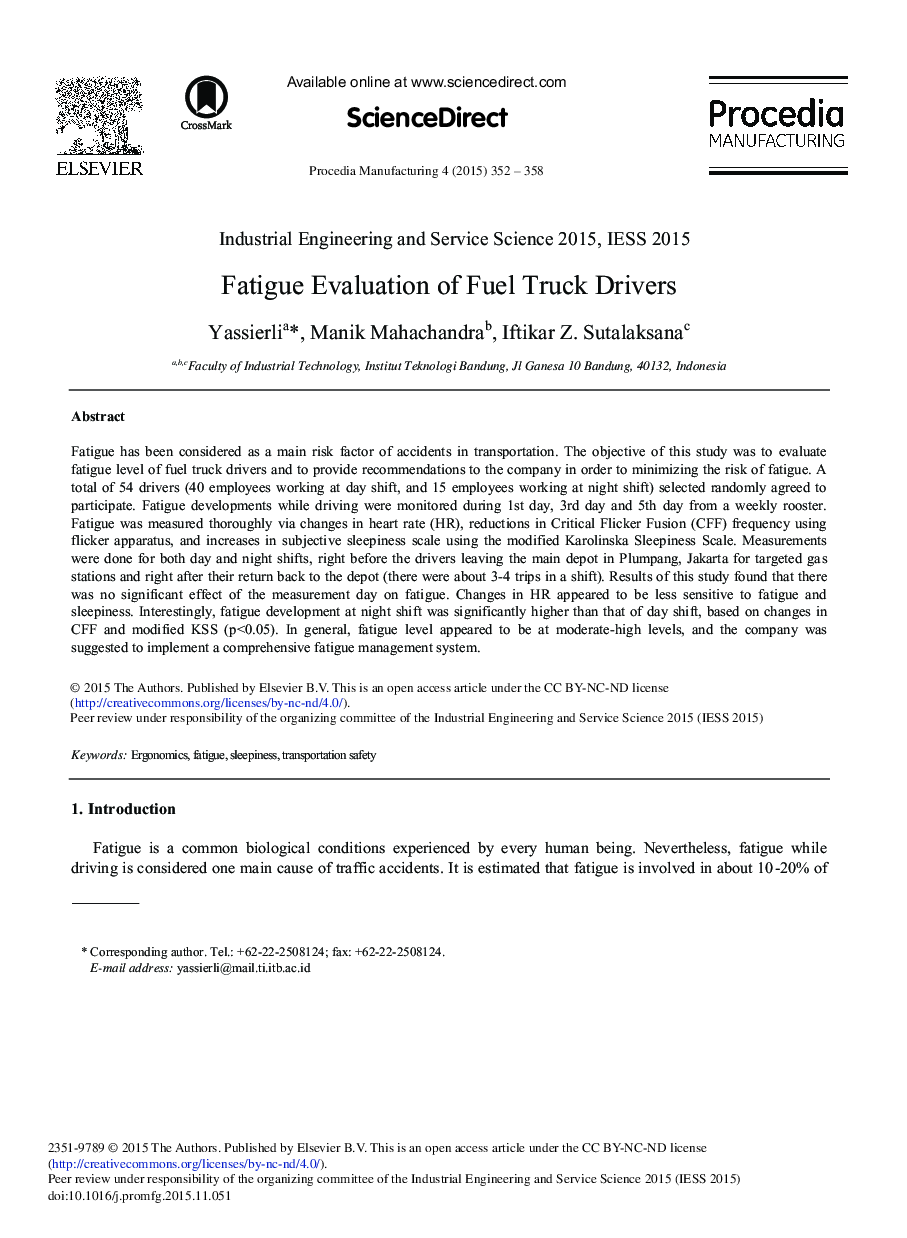| Article ID | Journal | Published Year | Pages | File Type |
|---|---|---|---|---|
| 1143544 | Procedia Manufacturing | 2015 | 7 Pages |
Fatigue has been considered as a main risk factor of accidents in transportation. The objective of this study was to evaluate fatigue level of fuel truck drivers and to provide recommendations to the company in order to minimizing the risk of fatigue. A total of 54 drivers (40 employees working at day shift, and 15 employees working at night shift) selected randomly agreed to participate. Fatigue developments while driving were monitored during 1st day, 3rd day and 5th day from a weekly rooster. Fatigue was measured thoroughly via changes in heart rate (HR), reductions in Critical Flicker Fusion (CFF) frequency using flicker apparatus, and increases in subjective sleepiness scale using the modified Karolinska Sleepiness Scale. Measurements were done for both day and night shifts, right before the drivers leaving the main depot in Plumpang, Jakarta for targeted gas stations and right after their return back to the depot (there were about 3-4 trips in a shift). Results of this study found that there was no significant effect of the measurement day on fatigue. Changes in HR appeared to be less sensitive to fatigue and sleepiness. Interestingly, fatigue development at night shift was significantly higher than that of day shift, based on changes in CFF and modified KSS (p<0.05). In general, fatigue level appeared to be at moderate-high levels, and the company was suggested to implement a comprehensive fatigue management system.
